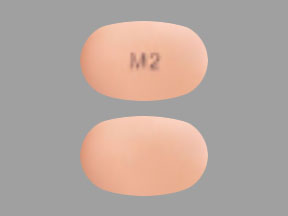
Mycophenolic Acid Coupons & Savings Card – Discount Prices from $41.20
My prescription
Edit
360MG, Mycophenolate (120 Tablet Delayed Releases)
Select pharmacy

CVS
$41.20
COUPON PRICE
Walgreens
$41.64
COUPON PRICE
Albertsons
$44.01
COUPON PRICEMycophenolic Acid savings card
Show this card to your pharmacist
CVS
$41.20
BIN
ID
PCN
GRP
019876
LH3CB23F29
CHIPPO
LHX
Powered by
More prescriptions for organ transplant
More prescriptions for organ transplant
Mycophenolic Acid dosage forms
Dosage Quantity Price from Per unit 180MG 120 Tablet Delayed Releases $27.60 $0.23 180MG 180 Tablet Delayed Releases $39.96 $0.22 360MG 120 Tablet Delayed Releases $41.20 $0.34 360MG 100 Tablet Delayed Releases $36.20 $0.36
| Dosage | Quantity | Price from | Per unit |
|---|---|---|---|
| 180MG | 120 Tablet Delayed Releases | $27.60 | $0.23 |
| 180MG | 180 Tablet Delayed Releases | $39.96 | $0.22 |
| 360MG | 120 Tablet Delayed Releases | $41.20 | $0.34 |
| 360MG | 100 Tablet Delayed Releases | $36.20 | $0.36 |
Mycophenolic Acid Warnings
Mycophenolate, used in immunosuppressive therapy, requires careful consideration due to potential risks and necessary precautions. Below are key safety and warning details you should be aware of:
Increased Susceptibility to Infections: Mycophenolate may reduce your body's ability to fight infections, increasing the risk of serious, potentially life-threatening infections. Notify your healthcare provider immediately if you experience symptoms such as a persistent sore throat, fever, chills, cough, painful or urgent urination, or changes in urine output.
Risk of Cancer: Prolonged use of mycophenolate may heighten the risk of certain cancers, including skin cancer and lymphomas. To minimize skin cancer risk, protect your skin from the sun by using sunscreen, wearing protective clothing, and avoiding tanning booths and sunlamps. Report any symptoms like swollen glands, unexplained weight loss, night sweats, or changes in skin appearance to your doctor.
Potential Harm to Unborn Babies: Mycophenolate can harm an unborn child, increasing the risk of miscarriage and birth defects. Both men and women should utilize reliable contraception during treatment. Discuss alternative treatments with your healthcare provider if you are pregnant or planning to become pregnant.
Blood Cell Count Reduction: This medication may lower your white and red blood cell counts, necessitating regular blood tests to monitor levels. Watch for symptoms such as persistent fatigue, sore throat, weakness, or pale skin, and inform your healthcare team if they occur.
Gastrointestinal Issues: Mycophenolate can cause severe stomach problems, including ulcers and bleeding. If you have a history of digestive issues, inform your healthcare provider. Seek immediate medical attention if you notice blood in your stool or vomit.
Inflammation Risks: Rarely, mycophenolate may cause inflammation symptoms such as fever, joint or muscle pain, and abnormal lab results. These can appear weeks to months after starting treatment.
Drug Interactions: Mycophenolate can interact with multiple medications. It is crucial to review all current medications, including over-the-counter products, with your healthcare provider to avoid adverse interactions.
Genetic Conditions: Avoid mycophenolate if you have a hypoxanthine-guanine phosphoribosyltransferase (HGPRT) deficiency, as it can exacerbate symptoms like gout and kidney issues.
Vaccination Considerations: Inform your healthcare provider if you are on mycophenolate before receiving any vaccines, as it may impact vaccine safety and efficacy.
Allergies: Do not use mycophenolate if you have a known allergy to this drug or its components.
In case of an overdose or severe adverse reactions, seek emergency medical attention immediately. Always consult your healthcare provider for personalized advice and before making any changes to your medication regimen.
Mycophenolic Acid Side Effects
Common side effects:
- Constipation
- Nausea
- Urinary tract infections
- Diarrhea
- Trouble sleeping
- Vomiting
- Upset stomach or indigestion
- Anemia
- Viral infections like cytomegalovirus
- Headache
- Gas
- Upper stomach pain
- Joint pain
- Back pain
- Tremor
- Fever
- High blood pressure
- Swelling from fluid retention
- Changes in lab test results such as electrolyte or cholesterol levels
Serious side effects:
- Stomach bleeding (black or tarry stools, bright red blood in vomit or stool)
- Serious infections (fever, cough, chills, night sweats, stiff neck, headache, pain while urinating)
- Increased risk of cancer
- Progressive multifocal leukoencephalopathy (PML)
- Serious allergic reaction (rash, itching, swelling, severe dizziness, trouble breathing)
Mycophenolic Acid Interactions
Interactions with high risk of serious adverse effects and should be avoided:
- natalizumab
- rituximab
- hormonal contraceptives (like pills, patches, or rings)
Interactions with moderate risk that may require dose adjustment, closer monitoring, or timing changes:
- activated charcoal
- live vaccines (Adenovirus, Dengue, Influenza, Measles, Mumps, Poliovirus, Rotavirus, Rubella, Smallpox, Typhoid, Varicella, Yellow Fever, Zoster)
- Amoxicillin
- Ciprofloxacin
- medications containing aluminum or magnesium
Interactions with low risk that usually do not require a change in therapy:
- Cyclosporine
- iron supplements
- lanthanum carbonate
- sevelamer
